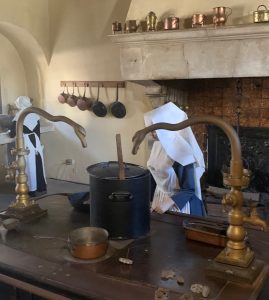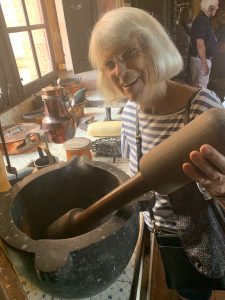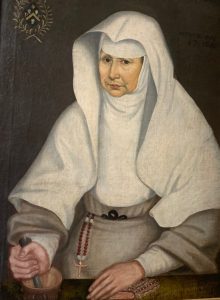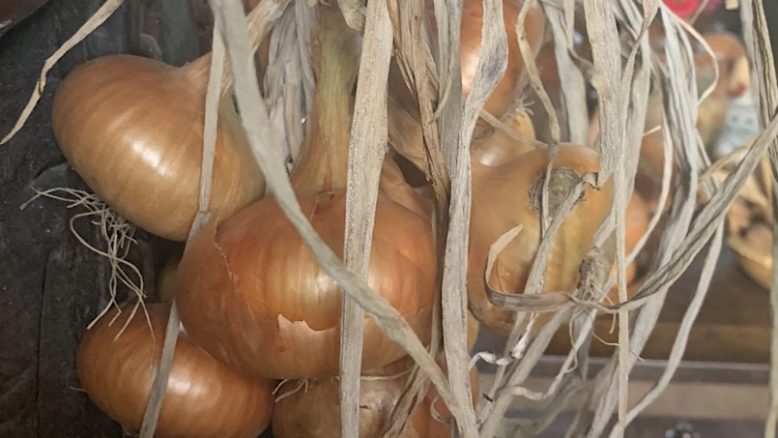The bundle of onions gathered from the fields and dried in the fall sun hangs to avoid the morning mists. In a season of the poet’s mellow fruitfulness there was an opportunity to see the kitchen at what in English guidebooks is called the “Hotel Dieu.” The real confusion is in the grandiosity of the translation. The sign over the entrance said, “Hostel Dieu.” Now all that would be a slip of the tongue so to speak, yet beyond the surface this hostel was one of the earliest hospitals. The photograph pauses in the kitchen where pots and pans hint at individual food preparation to suit the health condition of the patient. This was a step on the road to God. Food got better as the patient approached heaven.

The scale of tools was ironic. How does one grind volumes of herbs and spices to embed flavour into meals? Looking at the prep areas and the icebox and the open fire were a reminder of a love and care that nurtured each patient and served their individual needs. The last rites quickly became reframed as the last delights.

The tradition of passing from life to some enduring memory in eternity required spiritual practice, and palliative care was located around the altar. Food was spiritual and for the healing of the nations. All this in a hospital for the poor established in 1443. Generations have served and been served here and in 1862 the site was declared a historical monument. There is a long standing spiritual tradition here wherein nursing staff were given a day off each week and recognized for their specialized skills. Maybe food will return as more than jello on a tray. Food may again become a spiritual practice.

